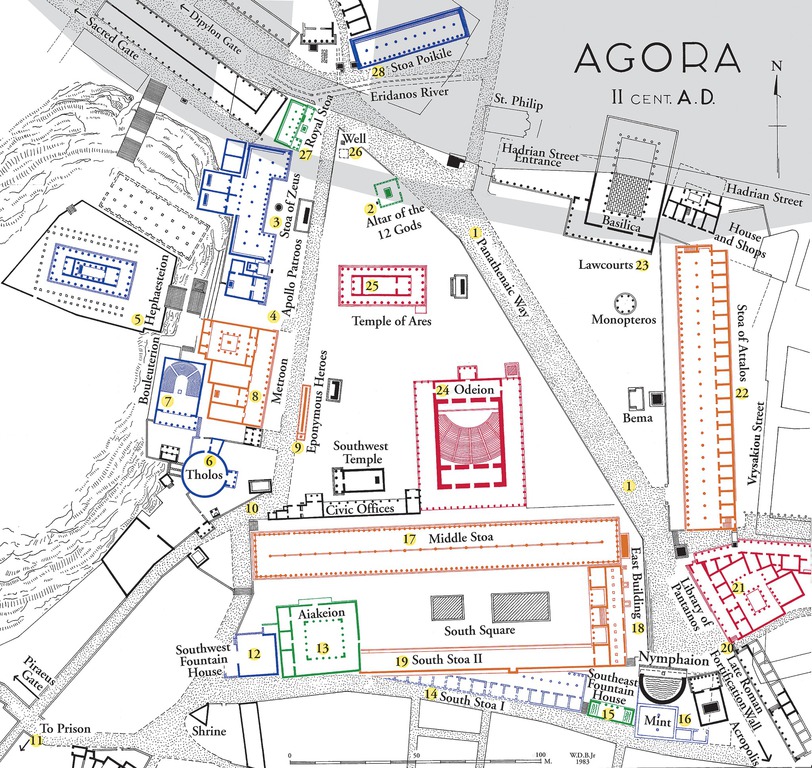Agora
The Physical Context of Athenian Rhetoric
Agora is the Greek word for market. In most Greek cities ( póleis) the agora was the center of public life. People bought and sold here, ate and drank here, worshipped here, performed here, and debated politics and justice here. If you were a citizen male over the age of 20 who could afford not to work often, the agora was the place to be some 250 days of the year. Below is an aerial photo of ancient Athen's agora, circa 1975. Below this image are some more details.

The Agora archeological site in detail.
2D Diagram
To speak effectively in front of a large crowd takes skill and courage. Public speaking out ranks death in surveys of greatest fears. "The fear of public speaking is the most common phobia ahead of death, spiders, or heights. The National Institute of Mental Health reports that public speaking anxiety, or glossophobia, affects about 73% of the population. The underlying fear is judgment or negative evaluation by others." (link) For the ancient Greeks, remaining silent in a political setting was considered "unmanly" or what today we would call unseemly. Silence was also dangerous because anyone could accuse anyone of anything and if you couldn't defend yourself you could find yourself financially ruined or exiled or even executed. Thus rhetorical skill was highly prized and rhetorical training lucrative, though it's efficacy wasn't universally acknowledged, and some people, like Socrates, thought it unethical either because it didn't work or because it worked too well, turning unexceptional people into demagogues.
For all of this in greater detail, see Hansen, The Athenian Democracy in the Age of Demosthenes. Also, see The Athenian Agora: A Guide to the Excavation and Museum. Fourth revised edition. American School of Classical Studies at Athens, 1990. You might also want to look at The World of Athens: An Introduction to Classical Athenian Culture. Cambridge: Cambridge UP, 1984.
